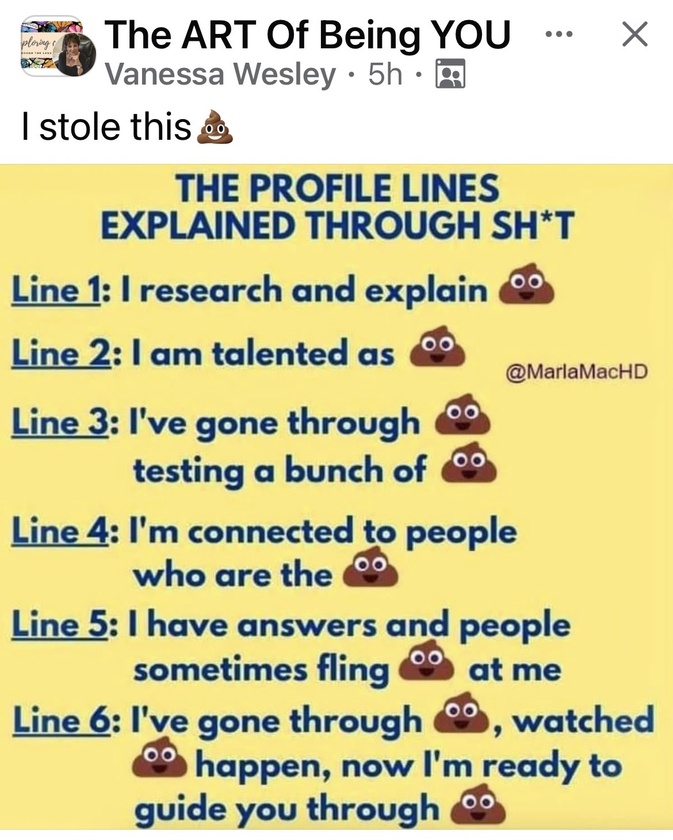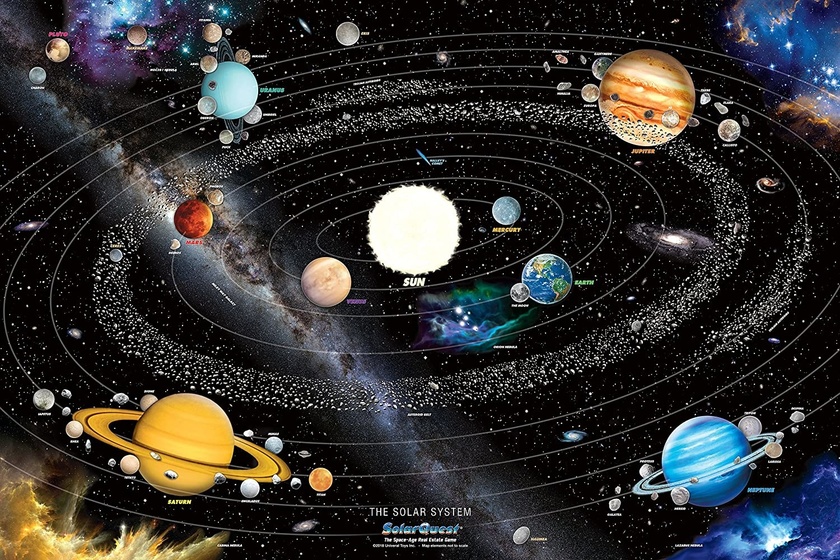Notself Defense Mechanisms of the 12 HD Profiles
More from Richard Rudd - remember, the descriptions are of a notself version of these profiles.
Whatcha think? Familiar? or No?
If you're uncertain how to find your HD Profile, either look on your chart - it should be listed in the written details.
Or if you'd like to know how to find the profile of any chart - just by looking at the chart... I'm adding a link in the comments to a 1min video I made showing how to do this.
"We looked at the Not-Self line keynotes and their application to any line in your design.
Now we will see them combined through the 12 profiles.
Out of these combinations of the not-self keynotes arise the 12 archetypal defense mechanisms of all human beings. This knowledge has all kinds of deep implications in the field of psychology as well as being a foundation stone of a whole new science of awakening.
The keys below represent only the very surface of this knowledge - a knowledge that is both revolutionary and deeply disturbing to the very existence of Not-Self within each of us. Thus I invite you to observe your own reactions upon reading it!
The 12 Archetypal Defense Mechanisms of the Not-Self
1/3 They are insecure about feeling ashamed - They try to make things right in order to feel more secure about themselves, only to find that they make more mistakes and consequently feel more insecure. Their Defense strategy is to bury themselves in whatever they do.
1/4 They are insecure about not being accepted - They slowly shut down because every time they try to externalize, they end up feeling more insecure because they always meet resistance.
2/4 They are unaware of feeling unaccepted - They are always shocked when other people reject or resist them, and consequently they gradually shut themselves off in their own busy little worlds.
2/5 They are unaware of being paranoid - They behave as though they don't care what others think of them (when they care more than anything), thus they alienate themselves without understanding why.
3/5 They are ashamed of their paranoia - They try to fix their own mistakes based on what others may or may not think of them. They either conform out of guilt or rebel out of denial.
3/6 They are ashamed of feeling disconnected - They try to fix this by being a perfect role model, only to discover that they can't be, which makes them feel even more ashamed. Their Defense strategy is to keep on keeping on in the hope that things will get better, whilst pretending all along that nothing is wrong.
4/6 They feel unaccepted because they are disconnected - they adopt a rigid attitude of denial that hides a deep fear of not being accepted. They maintain a tight control over their lives and are adept at masking their vulnerability, thus making it difficult for others to pierce their aloofness.
4/1 They feel unaccepted out of their insecurity - They try to become accepted in order to feel secure, but in trying, they end up distancing themselves from others in the process. Thus, they hide their light under a bushel for fear of being resisted.
5/1 They are paranoid about being insecure - They try to hide their insecurity from others by their actions, and ironically in doing so, they actually expose it. The more they expose their insecurities, the more withdrawn they become.
5/2 They are paranoid about being unaware - They try to regulate their behavior so as not to draw attention to themselves in the hope of being left alone. Out of a fear of themselves, they try to control their lives by locking themselves away in their own private world.
6/2 They are disconnected from being unaware - Because they cannot identify with what others see in them, they assume that others simply do not understand them. Thus they adopt an attitude of denial that makes them come across as arrogant and aloof. This results in them feeling even more misunderstood and disconnected from others.
6/3 They are disconnected from feeling ashamed. They try to hide from their mistakes by denying their own sense of guilt. Their defense from feeling pain is to keep on keeping on, in the hope that they will forget their past. This refusal to acknowledge their own mistakes makes it very difficult for them to trust in others and consequently they try anything that helps them escape their pain."
Image sourced by Chaitanya :)



















